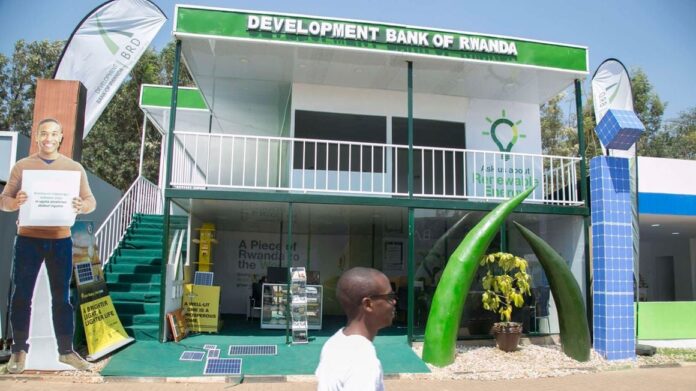State-owned Development Bank of Rwanda (BRD) has floated a sustainability-linked bond at the Kigali bourse, targeting to raise Rwf30 billion ($24.8 million) to support its environmental, social and governance (ESG) programmes with partner lenders.
The bond, listed at the Rwanda Stock Exchange on Friday, is expected to close on October 13 and will have a seven-year maturity period. It is the initial issuance as part of a larger plan to raise Rwf150 billion ($124 million) in the medium term.
A first by such a national development bank globally, the bond aims to increase loans by BRD and its partner financial institutions to women-led businesses and financing of affordable housing projects.
Kampeta Sayinzonga, BRD’s chief executive officer, said the bond, being the lender’s first ever, is an attempt by the bank to diversify “its source of development finance by tapping into the local capital market.”
“This will ensure that BRD is no longer solely reliant on international credit lines thereby sophisticating further its resource mobilisation efforts,” Sayinzonga said.
The Rwandan government, through a World Bank loan, will do credit enhancement for the bond — a strategy to boost the BRD’s risk profile and minimise the cost of servicing returns — to help mobilise private sector finance.
The World Bank said in a statement that it expects that “with time, BRD will be able to issue without a credit enhancement, given its strong balance sheet and credit rating.”
Unlike many sustainability-linked bonds globally, which normally offer step-down coupon rates, the BRD bond will offer a step-up coupon rate, meaning that the rate of return will increase at least once during the life of the bond.
“I am confident that this issuance will act as a template for many other countries in the coming years,” said Keith Hansen, World Bank’s country director for Kenya, Rwanda, Somalia and Uganda.
Sustainability-linked bonds have been an emerging source of finance for green, social and sustainable projects across the globe.
According to data by Bloomberg, this type of financing raised more than $500 billion in the first half of this year alone, an 18.6 percent rise compared to a similar period last year.
Credit rating agency Standard and Poor’s estimates that global sustainable bonds issued this year will surpass the $900 billion recorded last year, accounting for between 14 and 16 percent of total bond issuances worldwide.
According to the East African the region, less than five such bonds have been issued so far. The first sustainable bond in the region was listed at the Nairobi Securities Exchange, issued by real estate developer Acorn Holdings Ltd in 2019, targeting to raise Ksh5 billion ($34 million) with a maturity period of five years at a 12.25 percent return rate.
Tanzania’s first ever sustainable bond was issued this month by CRDB bank, seeking to raise Tsh780 billion ($300 million) at a coupon rate of 10.25 percent for financing od green projects in the country.
Uganda is yet to list any as its bourse still doesn’t have a sustainability bond listing segment.




